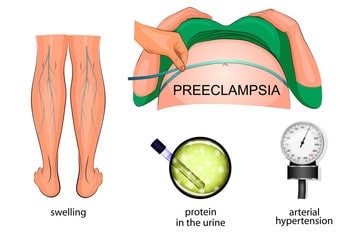Eczema is a rash that causes dry, irritated, red, and itchy patches of skin. In most cases, eczema refers to atopic dermatitis, which is an allergic reaction that affects the skin.
The skin disorder may go through periods of healing, known as remission, where there are virtually no symptoms.
At other times, however, eczema may become aggravated, and the symptoms worsen. This is known as a flare.
People with this skin problem are often advised to avoid triggers, or things that cause eczema flares. Triggers are different for each person and may include:
- Certain detergents
- Fragrances
- Allergens
- Stress
- Certain foods
- Other irritants or allergens

What is herpes simplex virus?
Herpes simplex viruses are commonly called “herpes.” They spread from person to person and can cause painful or itchy blisters or open sores.
When sores or blisters appear, it is called a herpes outbreak. Many people have herpes but do not have outbreaks, so they are unaware that they have the virus.
The two most common types of herpes are:
Herpes simplex virus type 1 (HSV-1): HSV-1 commonly causes cold sores, known as oral herpes. HSV-1 is very contagious, and many people get HSV-1 through non-sexual contacts, such as kissing or sharing personal items like lip balm or utensils. An estimated 67 percent of people under age 50 have HSV-1, globally, according to the World Health Organisation. HSV-1 can spread through sexual contact from the mouth to the genitals, but it is not necessarily a sexually transmitted infection.
Herpes simplex virus type 2 (HSV-2): HSV-2 spreads through sexual contact with an infected person. It can cause blisters in the genital area, known as genital herpes. It may also be spread to a baby during childbirth if the mother is infected.
Symptoms of eczema herpeticum
Eczema herpeticum usually appears on the face and neck. It can also appear in other places on the body such as the hands. It can take up to two weeks for symptoms to appear after the first contact with the herpes simplex virus.
Skin symptoms include:
- A cluster of small blisters that are itchy and painful
- Blisters that look red, purple or black
- Blisters that ooze pus when broken open
Other symptoms include:
- High fever and chills
- Swollen lymph glands
- Not feeling well overall
If you suspect you may have eczema herpeticum it is very important that you see a doctor immediately.
Treatment and prevention For Eczema Herpeticum
It is treated with antiviral medication, and it can lead to hospitalization. Bacteria do not cause eczema herpeticum, so it is not treated with antibiotics.
An ophthalmologist may need to examine suspected infections in the cornea of the eye. Early treatment is necessary to avoid serious health problems and to stop it from spreading to vital organs.
The best way to prevent eczema herpeticum is to keep eczema symptoms under good control and to take measures to avoid catching HSV-1 or HSV-2.
The following tips may help:
- aciclovir antiviral tablets
- Antiviral medication is used to treat eczema herpeticum.
Know eczema triggers: Avoid them whenever possible.
- Moisturize skin after bathing and throughout the day, as needed: Avoid scratching the skin, as this may cause cracks or breaks that leave it vulnerable to infections.
- Use medications as prescribed by a doctor: These may be oral as well as creams for the skin.
- Keep track of eczema symptoms: Always see a doctor if they worsen.
- Avoid catching a cold sore: Do not kiss people with active cold sores or share drinks, utensils, or personal items with them.
- Protect affected skin: Wash hands frequently and avoid touching areas affected by eczema, whenever possible.
- Avoid sexual contact with those who have genital herpes: Ask sexual partners if they have been tested for sexually transmitted diseases, including herpes.
- Use a latex condom during sex: This acts as a barrier against sexually transmitted infections, including herpes.
See a doctor right away if a blistery rash appears on the skin, especially if other symptoms such as fever are present. Parents of infants and young children should keep the child’s eczema symptoms under control and see a doctor immediately if blisters appear.
For more information, read. The Effects of the Nigerian Ketogenic Diet Can Have on Your Skin
SOURCE
MEDICAL NEWS TODAY: ECZEMA HERPETICUM: SYMPTOMS, DIAGNOSIS, AND TREATMENT
ECZEMA LIVING: SYMPTOMS OF ECZEMA: ITCHY SKIN, DRY SKIN PATCHES

